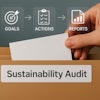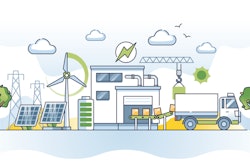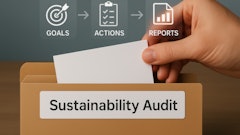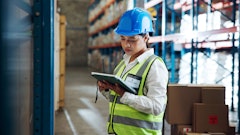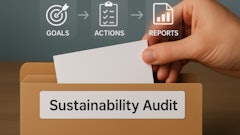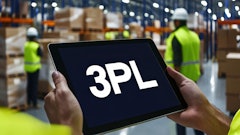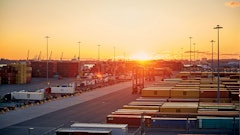
Climate change is exposing the fragility of today’s complex supply chains, causing disruptions for companies around the world. Last year, record-breaking heat waves shut down power plants in France and factories in China. Floods ravaged millions in Pakistan killing more than 900,000 livestock. One 2020 study calculated environmental risks could cost companies as much as US$120 billion over the next several years.
While the biggest corporations begin to wake up to climate risks, they are overlooking a major challenge: how climate change is impacting the small- and medium-sized enterprises (SMEs) they depend on, and in turn, their bottom line. More than 70% of a company’s greenhouse gas (GHG) emissions take place along the value chain, and more than 90% of the workers who touch a large company’s products are not direct employees—in fact, many of them work for SMEs.
To succeed in today’s environment, corporations must partner with SMEs in their supply chain to support them in adopting clean energy and building resilience to climate impacts. Building more resilient and equitable supply chains sits squarely within large companies' own economic interests. Resilient partnerships keep products flowing to customers on time. Equitable partnerships boost bottom lines. Strong partnerships achieve climate targets.
The COVID-19 pandemic exacerbated inequities between large and small companies in global supply chains. Large corporations in the textile industry, for example, protected themselves from decreased demand by cancelling supplier contracts. But when demand picked back up, those large companies found that many of the smaller suppliers had been forced out of business during the pandemic.
Climate change is causing a similar dynamic: large companies are setting goals to reduce GHG emissions and build climate resilience. They then ask or expect suppliers, despite having significantly less resources to cope with climate change, to help meet those targets without support. Few, however, have considered creating incentives for SMEs in their supply chains to cooperate.
A forthcoming WRI analysis of 1,000 corporate supply chain sustainability goals, as part of the CREST initiative, shows that approximately 90% of them either “push” suppliers to take specific actions (e.g., explicitly ask or force suppliers to set climate goals of their own) or “pull” suppliers to follow their lead (e.g., through procurement policies and codes of conduct that suppliers must meet to stay in business). A glaring gap in those corporate goals; is an approach where large companies “partner” with and understand what SMEs need. Each industry and supply chain is unique, but every transition requires new skills to build for workers and new technologies to integrate into processes. To enhance supply chain resiliency, we recommend that large companies empower suppliers, especially SMEs, with the tools and resources needed to address and adapt to climate, social, and economic change.
Partnering starts by listening to and learning from SMEs, instead of acting on assumptions. This was the case in the mint supply chain. 80% of the world's mint is grown in India. Mars, for example, spent several years engaging mint farmers to learn about their pain points. Rather than setting greenhouse gas emissions and water efficiency goals, Mars created goals based on the feedback from smallholder farmers, such as sustainability improvements, increasing crop yields and farmer incomes. Mars even implemented goals for training programs and improving farmer livelihoods.
Better understanding the needs and barriers of SMEs enables large companies to find sustainable solutions. IKEA, for example, is testing and scaling an approach where they partner with suppliers to buy 100% clean energy. It began with 1,600 direct suppliers spread across three countries. In just two years, the initiative expanded to ten more. Partnering with a Fortune 500 company makes the transition to 100% clean energy viable for SMEs. IKEA has the experience, relationships, and financial ability to negotiate affordable pricing with renewable energy providers.
Global pressure and scrutiny on supply chains, including new regulations in the European Union, mean higher expectations for both large and small companies. Partnering with the SMEs in their supply chain keeps corporations stay ahead of competitors that rely on pushing and pulling suppliers along with them.
Partnerships may not come easily. Supply chains are incredibly complex and, in many cases, opaque. A large company may not know the thousands (or tens of thousands) of SMEs that help create the materials and products it sells. But the complexity and distance between the large and small companies does not change the fact that their economic fates are tied together. In the United States alone, a 2021 analysis estimated that heat waves impacting workers might cause $200 billion in annual economic losses by 2030.
When large companies push or pull SMEs to align with their supply chain sustainability targets without providing adequate support, that can leave supply chains vulnerable to future disturbances. Partner with SMEs to make them more resilient to climate impacts like heatwaves and droughts, and ensure workers are ready for the jobs of tomorrow.
This is not a call for a gradual shift. Large companies should start partnering with SMEs, now, to help build resilient supply chains. Find out what SMEs need and start hitting supply chain sustainability targets.

